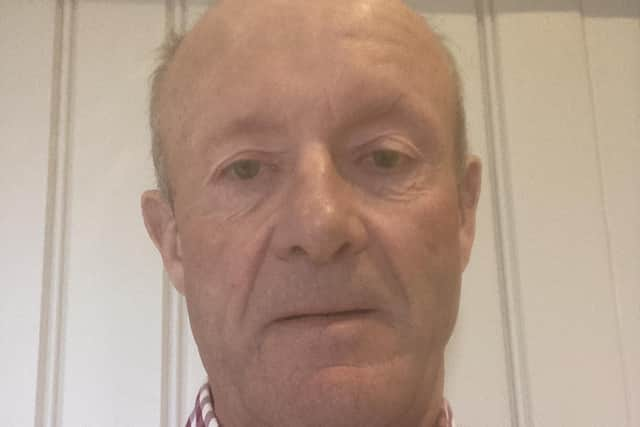Interest rates may never return to near-zero in our lifetimes: Martin Towers
The funds are simply not there. So the focus is on monetary policy to do the fighting and get inflation back down to no higher than 2 per cent as is the independent Bank of England remit.
Hence interest rates have been progressively raised from zero to around 5 per cent in the UK with similar moves in other countries. The theory goes that higher interest rates will reduce demand in the economy and in so doing bring inflation down as demand and supply move back into an equilibrium reasserting stable prices. But the problem quickly becomes clear.
Advertisement
Hide AdAdvertisement
Hide AdThe pandemic had already reduced demand for many goods and services yet inflation was rising.


The war in Ukraine reduced the supply of certain foodstuffs, demand itself being unaffected, so prices went up as a cost push not demand pull. Nothing to do with demand, and that is if you could get your favourite product through supply chain problems.
The oil price goes up if the oil producers cartel reduces supply in the short term with the demand still there. And in the UK the size of the working population fell as people left the workforce through ill-health and an on-going NHS crisis, high taxation encouraging early retirement and Brexit sending some people back home. A shortage of staff including specialist experienced staff lead to rising wages and salaries.
What this illustrates is that monetary policy is a blunt instrument to reduce inflation.
Advertisement
Hide AdAdvertisement
Hide AdThe root causes of inflation this time around may have little to do with excess demand, the characteristic of an overheating economy that needs to be cooled down. Hardly an accurate description of the mature UK economy that has experienced sluggish growth for years. Yet the impact on confidence through a constant stream of gloomy news on the economy around rising interest rates has its effect on behaviours. So the economy inevitably slows.
However inflation could become embedded above 2 per cent for some time as the instruments to fight it do not have much to do with the supply side. The upshot is interest rates are likely to stay above pre-pandemic zero for the foreseeable future and nearer 5 per cent than 0 per cent. Indeed we may not see 0 per cent again.
This is a serious matter for business. The higher cost of debt alone increases the cost of capital which can render capital projects unviable. Business investment, generally insufficient in the UK anyway post Brexit, takes a further drop. Confidence is low. Overly-geared businesses really struggle to pay their higher interest bills. Consumers struggle with higher mortgage repayments and the housing market dives. The economic cycle is back at work, re-awakened from its slumbers.
A higher cost of debt is also likely to affect the availability of credit not just the cost of it. The US has suffered a credit crunch as regional banks have gone bust. That has not happened in the U.K. yet lenders are being much more selective, risk adverse, so finance is harder to come by. The same is true for equity finance. The risk premium has risen.
Martin Towers is the former finance director of Kelda Group, which was the parent company of Yorkshire Water, and former CEO of Spice PLC. He is now an early-stage business investor.